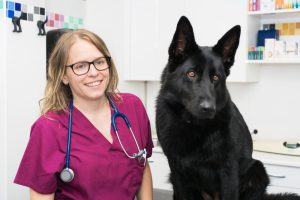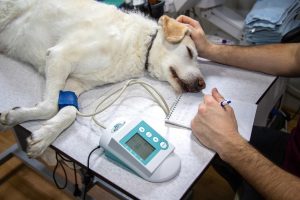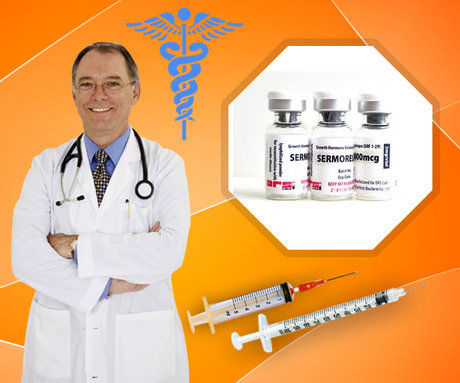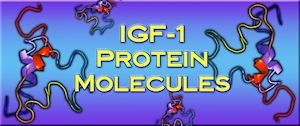 Well. You wouldn’t call it “HGH” deficiency since the first “H” in “HGH” stands for “human.”
Well. You wouldn’t call it “HGH” deficiency since the first “H” in “HGH” stands for “human.”
But, yes, pets, like dogs and cats, can suffer from growth hormone deficiency (GHD), although it is relatively rare. GHD in pets is similar in some ways to human growth hormone deficiency and can have various causes. Here are some key points to consider:
- Causes of GHD in Pets: Growth hormone deficiency in pets can be congenital (present from birth) or acquired later in life. Congenital GHD is usually genetic, while acquired GHD can result from pituitary tumors, trauma, or other medical conditions that affect the pituitary gland's ability to produce growth hormone.
- Symptoms: The symptoms of GHD in pets may include stunted growth (in the case of congenital GHD in young animals), delayed or impaired development of secondary sexual characteristics, and changes in coat quality. In older animals, acquired GHD can lead to muscle loss, reduced energy levels, and other signs of aging.
- Diagnosis: Diagnosing GHD in pets involves a thorough physical examination, medical history review, and blood tests to measure hormone levels. Imaging studies, such as MRI or CT scans, may be used to identify pituitary tumors or other structural issues.
 Treatment: If GHD is diagnosed in a pet, treatment options may include hormone replacement therapy with synthetic growth hormone, similar to the way human growth hormone therapy is used in cases of GHD. The treatment plan and dosage will be determined by a veterinarian based on the specific needs of the pet.
Treatment: If GHD is diagnosed in a pet, treatment options may include hormone replacement therapy with synthetic growth hormone, similar to the way human growth hormone therapy is used in cases of GHD. The treatment plan and dosage will be determined by a veterinarian based on the specific needs of the pet.- Monitoring: Pets receiving growth hormone replacement therapy will require regular monitoring by a veterinarian to assess the effectiveness of treatment and adjust the dosage if necessary.
It's important to note that GHD is not a common condition in pets, and its diagnosis and treatment should be carried out by a qualified veterinarian. If you suspect that your pet may have a growth hormone deficiency or any other health issue, it's essential to seek veterinary care promptly to ensure proper evaluation and treatment.
The reason I ask is that my dog seems to crave my HGH ampules and finds them very tempting.
 If your dog is showing an unusual interest in your HGH (human growth hormone) ampules or any medication, it's crucial to take this behavior seriously and ensure the safety of your pet. Human medications can be harmful or even toxic to animals, and ingestion of HGH or other substances intended for human use can have serious consequences for your dog's health.
If your dog is showing an unusual interest in your HGH (human growth hormone) ampules or any medication, it's crucial to take this behavior seriously and ensure the safety of your pet. Human medications can be harmful or even toxic to animals, and ingestion of HGH or other substances intended for human use can have serious consequences for your dog's health.
Here's what you should do:
- Secure Medications: Make sure that all medications, including HGH ampules, are stored in a safe and secure place that is out of your dog's reach. This will help prevent accidental ingestion.
- Contact a Veterinarian: If your dog has ingested any medication, including HGH, or if you suspect that he has, contact your veterinarian or an emergency veterinary clinic immediately. Provide them with information about the substance ingested and your dog's symptoms.
- Observe Your Dog: Keep a close eye on your dog for any signs of illness or unusual behavior. Symptoms of medication ingestion can vary widely but may include vomiting, diarrhea, lethargy, tremors, seizures, or other signs of toxicity.
- Follow Veterinary Advice: Follow your veterinarian's advice regarding any necessary treatment, monitoring, or intervention. They may recommend inducing vomiting, administering activated charcoal, or providing other supportive care.
 It's essential to act quickly when you suspect your pet has ingested a potentially harmful substance, as timely intervention can significantly improve the outcome. Additionally, it's important to keep all medications and potentially toxic substances securely stored to prevent future incidents.
It's essential to act quickly when you suspect your pet has ingested a potentially harmful substance, as timely intervention can significantly improve the outcome. Additionally, it's important to keep all medications and potentially toxic substances securely stored to prevent future incidents.
If you have concerns about your dog's behavior or if you suspect they have ingested any medication, please consult with a veterinarian for professional guidance and care.
Contact Us For A Fast And Professional Response

- Testosterone: Can Women Smell a Man's Relationship Status? [Last Updated On: September 28th, 2025] [Originally Added On: January 16th, 2023]
- Avoiding -- or Reversing -- “Man Boobs" [Last Updated On: February 13th, 2025] [Originally Added On: February 10th, 2023]
- Deaths Caused by Unregulated Supplements [Last Updated On: February 6th, 2025] [Originally Added On: June 3rd, 2023]
- Are Street Drugs Better Than HGH Injections? [Last Updated On: March 17th, 2025] [Originally Added On: July 13th, 2023]
- Growth Hormone Deficiency in Pets [Last Updated On: February 27th, 2025] [Originally Added On: February 27th, 2025]
















